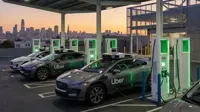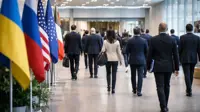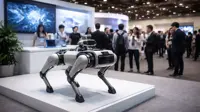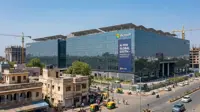Prime Minister Narendra Modi has turned down railway minister Piyush Goyal’s proposal to introduce a new signalling system, which would cost the Railways around Rs78,000 crore, citing the cost factor as well as the logic of rolling out an untested technology en masse.
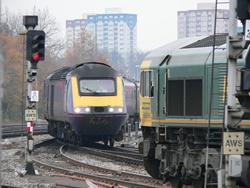
During a meeting attended by Goyal and senior Railway Board members on 26 March, PM Modi is learnt to have asked the Railways to carry out extensive trials of the signalling system in a section with heavy traffic density first, and take a call depending on its success.
The new signalling technology, which is based on the European Train Control System (ETCS) -Level 2, used mainly in high-speed systems by some foreign railways, has not so far been tested for Indian conditions.
The prime minister also turned down Goyal's ambitious plan to convert Mumbai's busy Chhatrapati Shivaji Maharaj Terminus (CSTM) into one a museum-cum-railway stations, the first such in India, ministry sources said.
Goyal had, in November last year, announced plans to convert CSTM into a “world-class museum”. However, Modi turned down the proposal citing a lack of supporting railway artifacts that could be showcased in the proposed museum.
Goyal also wanted the Railways to hire more ‘safai karmacharis‘ (sanitation workers) but he has been asked to make do with the existing staff, a PTI report quoting the sources said.
“During the meeting, the ministry was asked to concentrate on projects that are implementable. These projects had objections from the railway board, zones and even in certain cases the finance ministry,” the news agency cited sources as saying.
“To make Indian railways safe, I am planning to build the most modern signalling system through the entire railways network in India which will mean over 1.18 lakh km of railways on the line of European Train Control System (ETCS),” Goyal had proposed earlier this year.
Goyal, who has been vocal in support of the new signalling system, had also favoured giving the entire contract to one player to achieve economies of scale. However, officials of the railway ministry themselves had red-flagged the costly project, citing the actual cost would be at least 1.5 times the original estimated.
“So far, in the whole world, a total of 60,000 km of this system has been installed. We are doing that in India alone. India will change the rules of the game… The cost will finally be so less that no one would be able to compete with the price even internationally,” Goyal had said on the day of the Budget.
However, the project was an antithesis to the Modi government’s 'make in India’ programme. The PM is reported to have also told the Railways “to explore indigenously developed technologies for such signal upgrade in the future”.
As per reports, there were eight potential global suppliers, including Siemens, Thales, Alstom, Bombarider, Ansaldo, STS, CAF, and Memec Group, who could be vying for the contract.
ETCS-Level 2 is a complex system of electronic devices installed along tracks to convey train signals to a computer fitted in the locomotive, doing away with the need for track-side signal indicators. The devices fitted in the tracks get synched continuously to reflect the current signals on the route and to update that information in a running locomotive via wireless frequency. It negates the possibility of collision as trains are electronically prevented from jumping signals and, even if they do, the locomotive comes to a halt automatically.
Globally, including Europe, the wireless technology is based on the 3G-Global System for Mobile Communications (GSM), but the E&Y report professed a system based on the futuristic 4-G Long-term Evolution (LTE), which is still under testing.
Apart from the railway ministry’s finance department, an internal committee formed to advise the Railway Board on the project had also raised doubts, questioning the benefits of the project vis-à-vis operational capacity enhancement and return on investment.
 During a meeting attended by Goyal and senior Railway Board members on 26 March, PM Modi is learnt to have asked the Railways to carry out extensive trials of the signalling system in a section with heavy traffic density first, and take a call depending on its success.
During a meeting attended by Goyal and senior Railway Board members on 26 March, PM Modi is learnt to have asked the Railways to carry out extensive trials of the signalling system in a section with heavy traffic density first, and take a call depending on its success.

